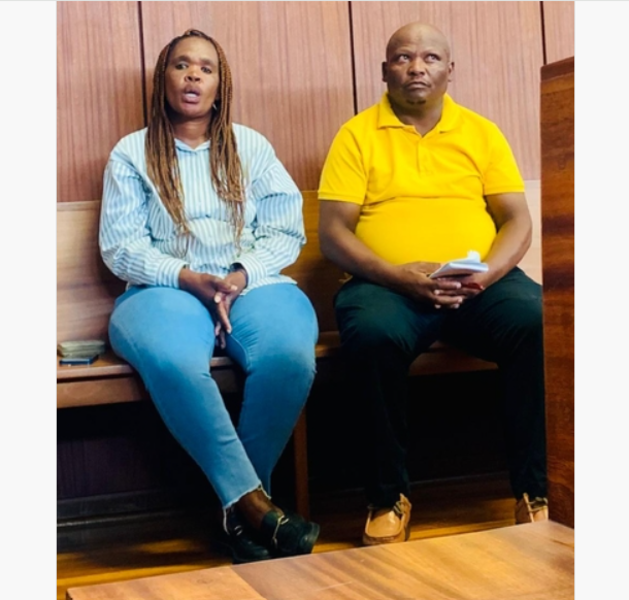Doctors confirm crushed asphyxia killed 21 minors in Enyobeni Tavern tragedy
Updated | By Algoa FM
Two medical doctors who conducted post-mortem examinations have confirmed that crushed asphyxia was the cause of death for 21 minors who died in the Enyobeni Tavern tragedy in East London three years ago.

Dr Zizo Phithi testified on Thursday in the Mdantsane Magistrate’s Court that she conducted postmortems on at least five victims, all showing signs of congested organs, internal bleeding, and external injuries.
She said the lab results received from Cape Town revealed high levels of alcohol, methanol, and abnormal amounts of carbon monoxide in the deceased.
The doctor said methanol is a chemical commonly found in homemade or illegal liquor, as well as in products like paint and antifreeze, making it a substance that is highly toxic and not suitable for human consumption.
Dr Phithi explained that the patrons suffered a “double blow”: physically suffocating in the overcrowded tavern while inhaling toxic air, with carbon monoxide levels reaching up to 21% — well above the normal 3 to 4 percent.
She explained that carbon monoxide is a byproduct of burning gas or generator fumes, which displaces oxygen in the air and causes further suffocation.
She also clarified that, to her knowledge, the pepper spray used that night could not have produced carbon monoxide nor caused the severe damage, but rather would only cause temporary irritation to the eyes and lungs.
The tavern owner, Siyakhangela Ndevu, had previously admitted to using a generator due to loadshedding in what has since been described as an ill-ventilated space.
The inquest was adjourned to Friday, when Dr Sithandiwe Kunyuza, another medical expert involved in the case, gave her testimony.
Dr Kunyuza said her findings were consistent with Dr Phithi’s conclusion that crushed asphyxia was the cause of death.
She told the court that although all patrons had methanol and varying levels of carbon monoxide and alcohol in their systems, these substances were contributory but not lethal on their own.
She explained that carbon monoxide levels would have to be at 50% to be considered lethal to a healthy adult of 65 years of age.
Dr Kunyuza said her major autopsy findings included superficial abrasions on arms and legs, internal bleeding, blue discoloration, brain swelling, and burst eye vessels consistent with increased pressure in the body.
She said while she was reviewing CCTV footage, she observed two survivors being pulled from a pile of bodies; both were limping and gulping water, signs that indicated they had been trapped in a congested area where breathing was impossible.
She also noted that the establishment’s single main entrance had been closed, while a large number of patrons were packed tightly in front of the door.
The court also heard that the third doctor involved in the case, who was the chief medical officer, has since passed away.
His report noted the possible use of pepper spray in an enclosed space as a contributing factor.
Dr Kunyuza suggested that, although she could not confirm this, the panic caused by the spray may have triggered the deadly stampede.
Former tavern bouncer Thembisa Diko previously testified that she used pepper spray earlier that evening in an attempt to control the unruly crowd.
Her defense, Advocate Mzwanele Nkebe, reminded the court that a police officer had also admitted to using pepper spray that evening.
Nkebe also questioned why the use of the spray was not included in the main findings but was instead mentioned only in an annexure on the last page, authored by a deceased doctor “who can tell no tales.”
Speaking to the methanol found in the blood of all the deceased, evidence leader, Luvuyo Vena, said it would be wise to bring in a diary, which the tavern owner, Vuyokazi Ndevu, had said had been found in the tavern, containing a list of chemicals.
Clarifying to Vena, she said the diary had been brought to her by an individual named "Anelisa" who said the diary contained a list of ingredients to make alcohol.
Dr Kunyuza conceded that no tests were conducted on the alcohol at the establishment to check for the presence of methanol.
The inquest has now been postponed to 20 August, when Dr Kunyuza is expected to conclude her evidence.
The first responders are also expected to testify as the inquest draws to a close.
ALSO READ

MORE ON JACARANDA FM
Show's Stories
-
Week In Review: The Round-up with Rob & Roz
World Cup of Toys, Things Men Secretly Do, ATMs, and feel-good moments.
The Drive with Rob & Roz 20 hours ago -
REVEALED: The things men secretly do... and it's hilarious
Jacaranda FM men - and women - revealed the secret things men do.
The Drive with Rob & Roz 20 hours ago